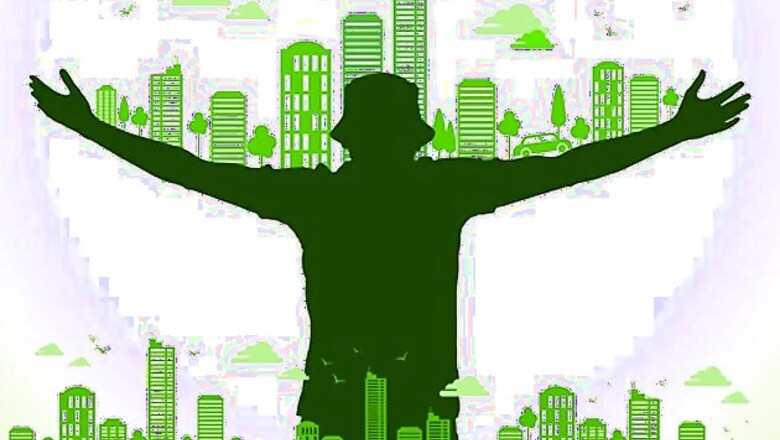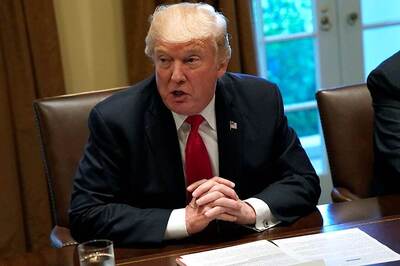
views
Sustainable development has occupied a prominent place in global development agenda for well over four decades. The Stockholm Declaration on Human Environment 1972 shaped the framework of environmental governance of national governments across regions and countries.
Our Common Future, as the report of the World Commission on Environment and Development 1987 is commonly known, broadened the vision of sustainable development that 'meets the needs of the present without compromising the ability of future generations to meet their own needs'. This vision guided the Rio Earth Summit 1992 that adopted Agenda 21 as the blueprint of sustainable development for the twenty-first century.
The enthusiasm generated at Rio frittered away by the close of millennium when global thinkers and leaders realised that the age of pious declarations and rhetorical statements should give way to concrete actions to implement the agenda on the ground and realise the goals of sustainable development in all its three dimensions - social, economic and environmental.
This was the motivating force behind the Millennium Development Goals (MDGs) on 8 clear goals and 21 targets to be achieved mostly by the close of 2015. Six of these goals were related to social and economic development - eradicating extreme poverty and hunger, achieving universal primary education, promoting gender equality and empowerment of women, reducing child mortality rates, improving maternal health and combating HIV/AIDS, malaria and other diseases; one related to environment - ensuring environmental sustainability; and one on developing global partnership for development.
The results achieved so far have been quite encouraging. The millennium development report card of 2014 shows that the world has reduced extreme poverty by half; the target of halving the proportion of people without access to improved drinking water source was achieved five years ahead of schedule; 90 per cent of children in developing regions are attending primary school; child mortality has been almost halved; efforts in the fight against malaria and tuberculosis have shown results; political participation of women has continued to increase; and official development assistance stood at $134.8 billion in2013, the highest level ever recorded.
However less than adequate progress was achieved in removing hunger and malnutrition, especially chronic under nutrition among young children, reducing maternal mortality, and providing access to improved sanitation.
The relative success in achieving some of the critical targets of the MDGs in the contexts of tardy implementation of the Agenda 21 resulted in a paradigm shift in approach towards sustainable development with more focus on implementation.
This change in approach was clearly reflected in The Future We Want, the outcome document of the United Nations Conference on Sustainable Development, known as Rio+20, held in Rio de Janerio in June 2012.
Building on the experience of the MDGs, this document underscored the importance of a set of Sustainable Development Goals (SDGs) that are 'action-oriented, concise and easy to communicate'.
A High Level Political Forum that replaced the Commission on Sustainable Development provided guidance for the development of the SDGs and an Open Working Group, in consultation with stakeholders including the civil society, the scientific community and the UN system, recommended a set of 17 SDGs with 164 time-bound targets, to be achieved mostly by the year 2030. The 70th session of the UN General Assembly in September 2015 will finalize the SDGs that would shape the global development agenda for the next decade and half.
Two other momentous events of 2015 - two preceding and one following the UNGA - will reinvent sustainable development. The first is the World Conference on Disaster Reduction in Sendai, Japan in March that will adopt the new global framework on building resilience from the risks of disasters, both natural and technological, that are posing threats to sustainable development in many countries, particularly the developing countries.
The two preceding frameworks - the Yakohama Strategy 1994 and the Hyogo Framework 2005 - helped to shape many national and regional agendas of disaster risk reduction, but lot more remains to be done to manage the risks of disaster to sustain the gains of development.
The second event is the International Conference on Financing for Development in Addis Ababa that would take stock of the requirement of funds for post-2015 development agenda and decide measures to be taken to meet the gaps in resources for implementation of the agenda. Surely the outcome of this conference is important for the implementation of the SDGs.
But probably the most important and crucial is the event that would follow the UNGA - the 21st session of the Conference of Parties of UNFCCC in Paris in December that would negotiate the final agreement on climate change to succeed the Kyoto Protocol that expired in 2012.
Much is at stake at this Conference - if the countries are able to reach an agreement that ensures that global greenhouse gas emission does not cross the tipping point of 2 degree centigrade above the pre-industrial level by the close of the century and at the same time guarantees that financial as well as technical are available to the developing countries to adapt to the changing climate, this would no doubt herald a new area that would eliminate the biggest threats to sustainable development; conversely, if no such agreement can be reached, the world would be, slowly but inevitably, heading to the scenario when rising temperature and unpredictable rains, melting glaciers and rising sea level, increasing extreme climatic events, and the impacts all these would have on water, agriculture, food, human health, security and settlements would make the planet of life - of men, animals and plants - difficult to sustain in the long run.
All these crucial issues of 2015 momentum to reinvent sustainable development would be discussed and debated during the fifteenth edition of Delhi Sustainable Development Summit (DSDS) on 5-7 February. The summit would probably bring global leaders and thinkers for the last time in one platform to discuss all these momentous issues that would be unfolding throughout 2015.
The author is a Distinguished Fellow in The Energy and Resources Institute (TERI).

















Comments
0 comment